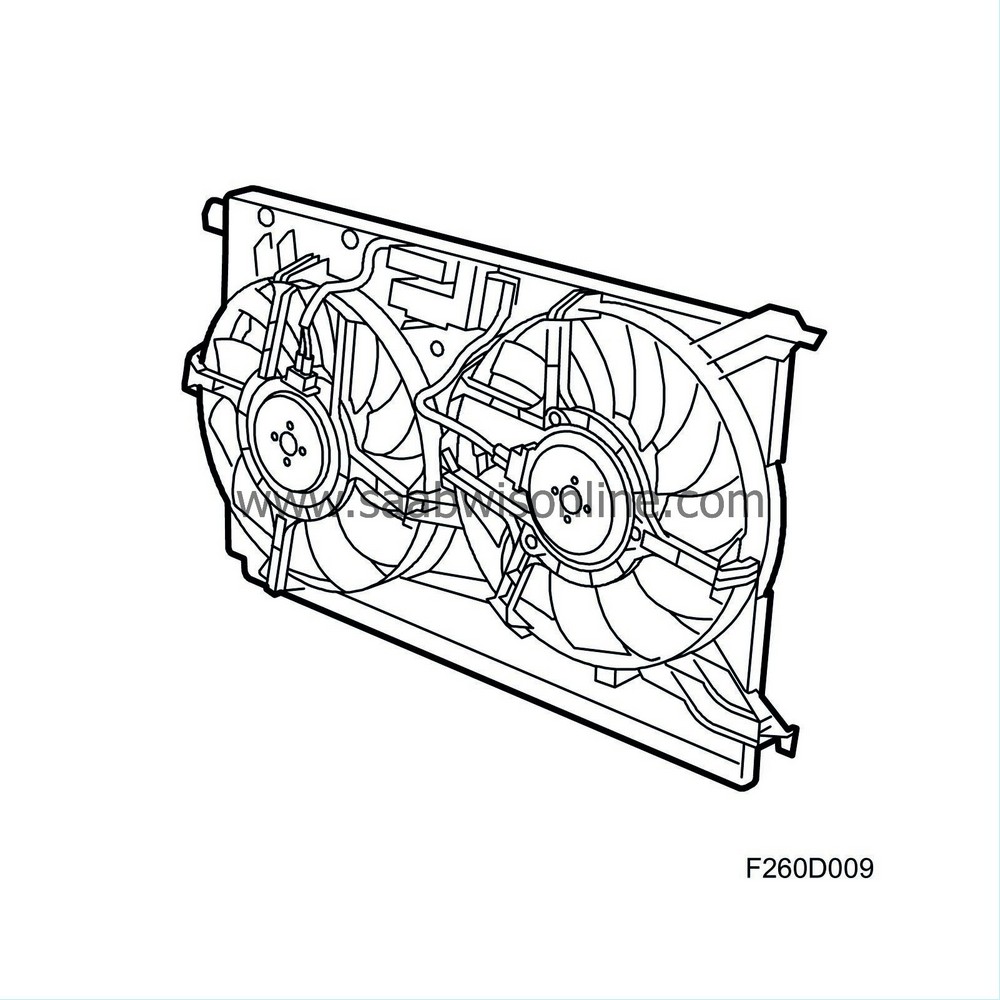Detailed description, radiator fans
| Detailed description, radiator fans |
| Speed 1 | Both fans run slowly | Fan 1: 45% of max. speed | Fan 2: 60% of max. speed |
| Speed 2 | Both fans run at moderate speed | Fan 1: 75% of max. speed | Fan 2: 75% of max. speed |
| Speed 3 | One fan runs at max. speed | Fan 1: 100% of max. speed | Fan 2: 75% of max. speed |
| Speed 4 | Both fans run at max. speed | Fan 1: 100% of max. speed | Fan 2: 100% of max. speed |
The radiator fans have their own relay box. Communication between the ECM and fan relay box is enabled by wiring via the UEC.
The following signals from the ECM control the fans:
| • |
Coolant temperature
|
|
| • |
A/C pressure
|
|
| • |
Oil temperature from automatic transmission
|
|
The radiator fan relay unit (706) is supplied with +30 from pins 3 and 6 on the UEC, and is grounded to G30A from pins 5 and 2.
3 leads lead from the ECM via the UEC to the relay box. These leads are connected to pins 1, 4 and 7 on the relay box. The four fan speeds are controlled by the grounding of these three leads.
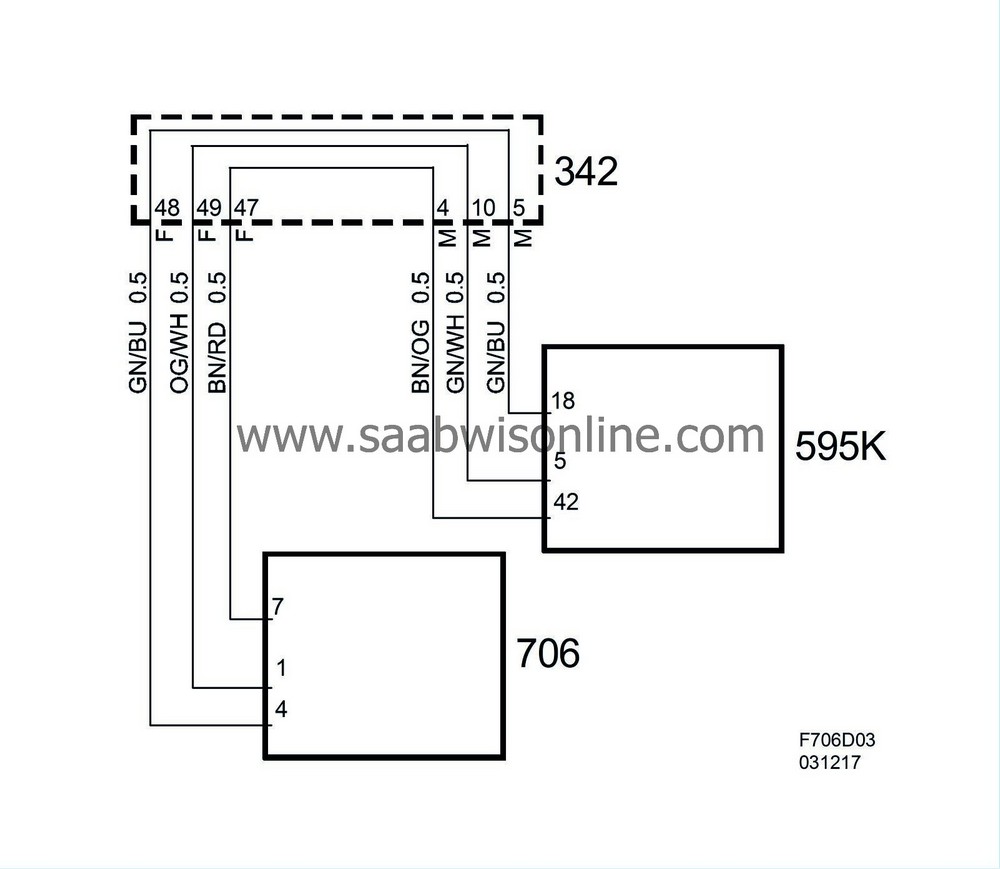
The radiator fans start in the following cases:
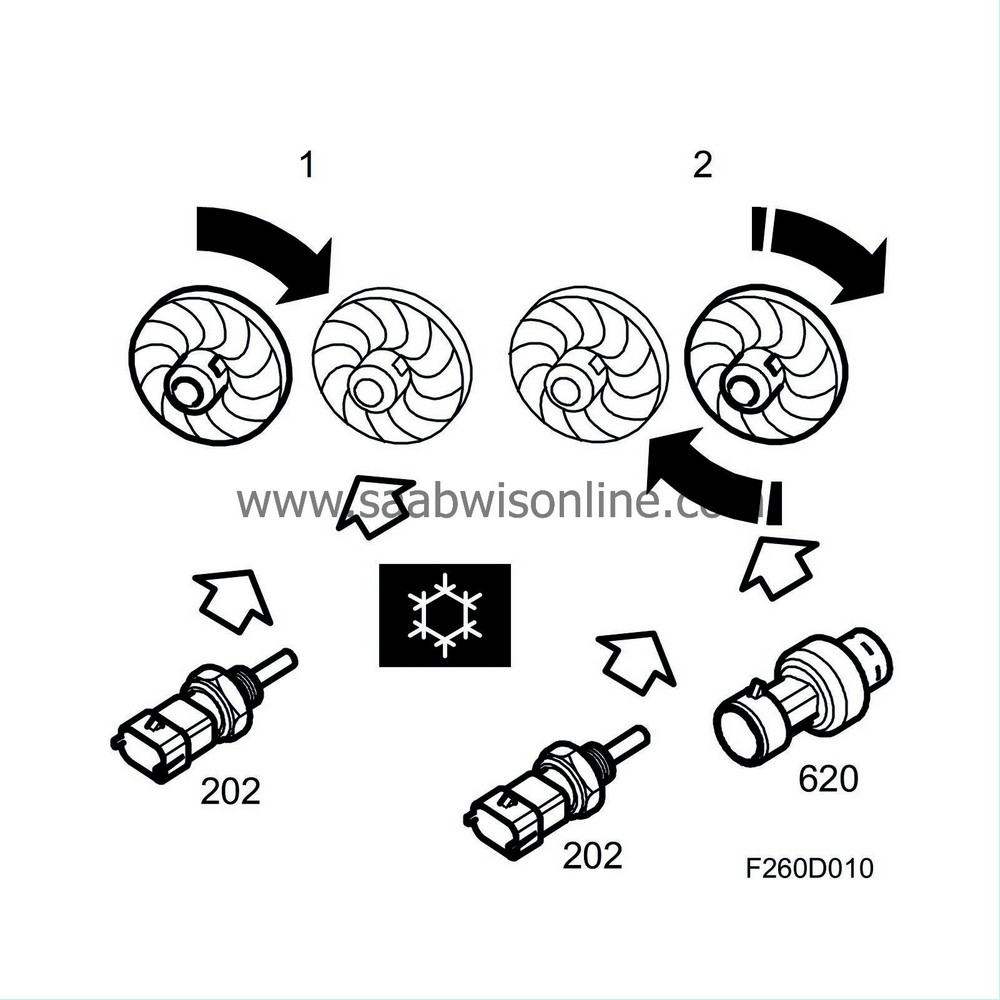
| 1. |
Temperature logic:
Fan speed 1 is engaged when the coolant temperature reaches 100°C and is disengaged when the temperature has dropped to 97°C. Fan speed 2 is engaged when the coolant temperature reaches 107°C and returns to fans speed 1 when the temperature has dropped to 103°C. Fan speed 3 is engaged when the coolant temperature reaches 112°C and returns to fans speed 2 when the temperature has dropped to 108°C. Fan speed 4 is engaged when the coolant temperature reaches 116°C and returns to fans speed 3 when the temperature has dropped to 112°C.
|
|
| 2. |
A/C pressure logic:
Fans speed 1 is engaged when the A/C pressure exceeds 1035 kPa and the radiator fans are switched off when the pressure drops below 966 kPa. Fans speed 2 is engaged when the A/C pressure exceeds 1650 kPa and reverts to speed 1 at a pressure of 1550 kPa. Fans speed 3 is engaged when the A/C pressure exceeds 2100 kPa and reverts to speed 2 at a pressure of 1800 kPa. Fans speed 4 is engaged when the A/C pressure exceeds 2400 kPa and reverts to speed 3 at a pressure of 2100 kPa.
If the temperature of the automatic transmission fluid rises to 140°C, the radiator fans will start at speed 4, irrespective of the temperature of the engine or pressure of the A/C system. Once the transmission temperature has dropped to 130°C, the fans will return to obeying the normal logic.
If there is no temperature signal, the radiator fans will run at full speed (speed 4). |
|
| Operation with ignition ON |
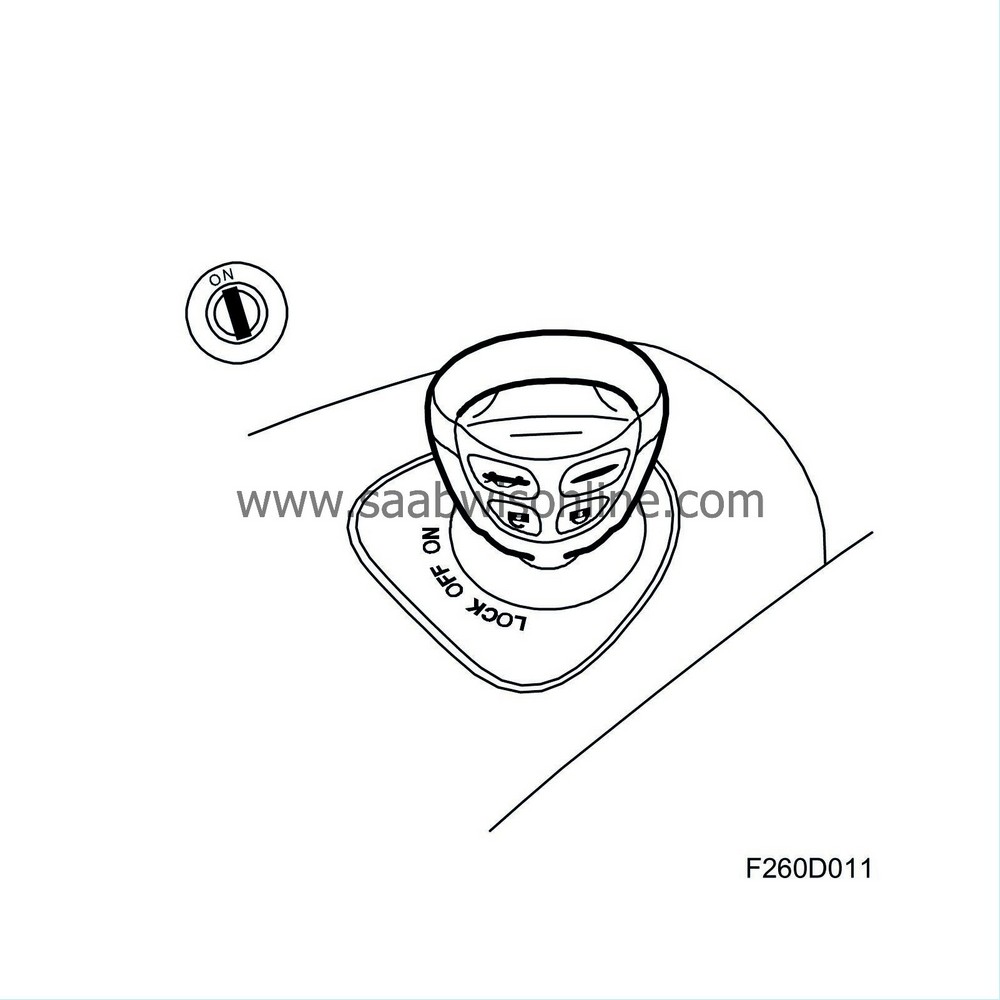
When the ignition is ON, the ECM uses the following information from the bus:
| • |
Coolant temperature (bus from ECM)
|
|
| • |
A/C pressure
|
|
| • |
A/C system status (active/inactive)
|
|
| • |
Transmission temperature
|
|
The ECM uses the information and controls the operation of the radiator fans.
Idle compensation
To maintain a constant idling speed when the radiator fans are switched on and off, their switching is delayed by 3 seconds. When the crankshaft position sensor detects that the engine idling speed is about to change, the idle control function in the engine control module will increase or decrease the fuel quantity to maintain the pre-programmed idling speed. The delay between different fan speeds gives the engine time to stabilize the idling speed.Current consumption
Approximate radiator fan current consumption at different speeds:| Speed 1 | 7A |
| Speed 2 | 19A |
| Speed 3 | 22A |
| Speed 4 | 30A |
The maximum current for speed 4 must not exceed 40A.
| Operation with ignition OFF |
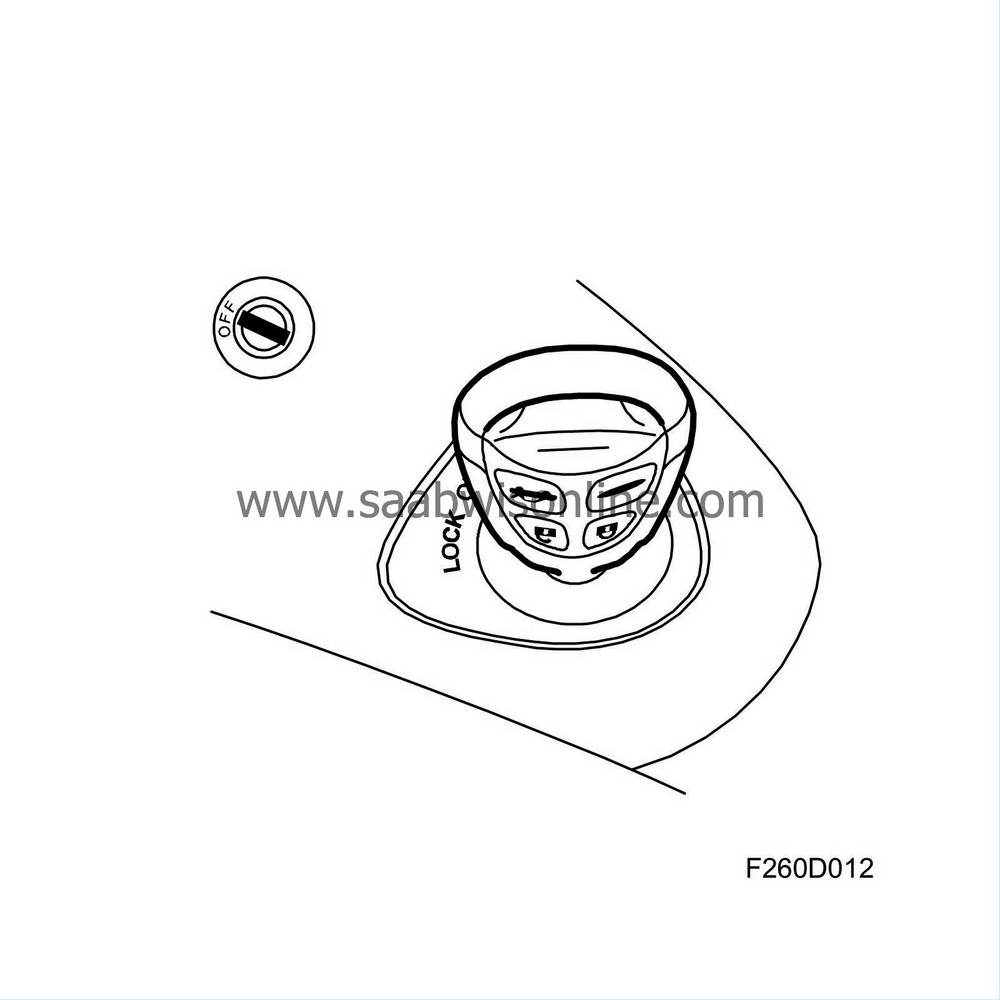
The ECM controls the radiator fans when the ignition is OFF based on the engine temperature. If the temperature is lower than 100°C, the fans will remain switched off. If the temperature exceeds:
100°C the fans run for 30 seconds
105°C the fans run for 90 seconds
110°C the fans run for 150 seconds
115°C the fans run for 210 seconds
120°C the fans run for 270 seconds
The radiator fans run at speed 1. A new temperature measurement is taken every 30 seconds.
Note that fans can only run at speed 1 when the ignition is OFF.

